Is deflation such a bad thing?
- Published

Policymakers are concerned about falling prices
Fear of deflation, or falling prices, is scaring central banks in the eurozone and Japan.
Unusual central bank weapons are being wielded.
Both negative interest rates - where depositors pay banks to keep their money - and quantitative easing - the buying of financial assets with newly created money - have been deployed.
But why is it such a problem? Falling prices sounds like a pretty good thing, doesn't it?
In some circumstances, that might be the case, and there is a view that moderately falling prices can be beneficial. But deflation can sometimes be troublesome. Modern central banks, external generally regard it as something to be avoided.
One reason is the effect on debtors. Prices and perhaps incomes may fall, but debts do not. If you are a business with falling revenue, or a household with a declining income, debt payments become more of a burden.
Governments can be caught in the same trap, because if prices and incomes fall, so does tax revenue.
And to state the obvious, there is an awful lot of debt floating around the eurozone - money owed by governments, households and banks. Deflation could aggravate that problem.
Spending delayed
In the case of the eurozone, those countries experiencing very low inflation - or actual deflation, as a few are (including Greece) - tend to be those with relatively high levels of private or public debt.
There is, however, some comfort to be had from that. Those with debt problems also tend to be those that have seen their competitiveness decline. Falling or barely rising prices and incomes do help address that.
Another issue is the effectiveness of central bank policy at a time of economic weakness. The key point here is the level of central banks' real interest rates: that is, after subtracting inflation.

If deflation sets in, it can hurt retailers' prospects
There have been many episodes in the past when real rates have been below zero. That is impossible to do when there's deflation, as you can't get interest rates much below zero. So it makes it much harder for the central bank to do anything to stimulate a flagging economy.
Then there is the incentive to delay spending that can come with deflation. If something will be cheaper next year, some people might delay buying it.
It doesn't apply to everyday essential purchases; you cannot wait 12 months for lunch. But it can be relevant to items where there is more room for delay - are you going to replace that fridge now or next year?
The key factor here is expectations of future prices. The fact that prices fell last year does not necessarily mean they will do so next year. But last year's inflation (or deflation) can be a factor when people form their expectations about what lies ahead.
There is also a downside in terms of the adjustment that is needed to restore competitiveness in some eurozone countries. They need to either reduce costs or increase productivity by more than the competitive nations - such as Germany.
If inflation across the eurozone is very low, it is more likely to be the case that some will need outright deflation, with the other problems it can bring.
Wage trap
Another reason this can be so tricky is a phenomenon that economists sometimes call "sticky nominal wages". If you need a country (or a particular industry) to become more competitive, it is a lot easier if wages elsewhere are rising.
You can achieve the necessary adjustment if wages in the country concerned rise more slowly. But if pay elsewhere is not rising, you need wages at home to fall, which generates more resistance and is harder to make happen - although as we have seen in several struggling eurozone countries, it is not impossible.
Nominal wages are sticky, and harder to increase than to cut. To put it another way, if you do need real wages to fall, it is easier if you can leave inflation to take care of it without having to cut pay in cash terms.
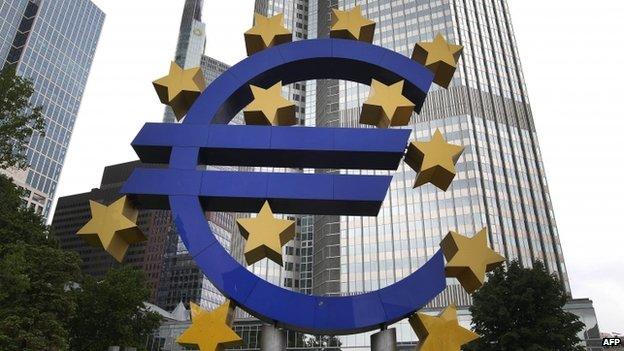
The ECB is using its biggest guns to stave off deflation
The main recent experience of deflation has been seen in Japan, where there have been a number of episodes of falling prices since the financial crisis of 1991. It has also been a period of sluggish economic performance, with an average growth rate of 1%.
Another example that looms large is the Great Depression of the 1930s.
These have certainly been periods of poor or worse economic performance, although there is some room for debate about whether deflation was the cause of the weakness.
And there is an alternative view that moderate deflation is no bad thing, especially if it is the result of innovation that reduces production.
Prof John Cochrane of Chicago University has another reason for suggesting that falling prices can be benign.
He wrote in his blog, external: "Zero inflation, or even a slow, steady, and widely expected deflation, are in fact much better in the long run. The financial system is much healthier with bundles of cash lying around, at no interest cost, than if everyone is engineering clever, but ultimately fragile, cash management schemes."
The authors of this Bank of International Settlements paper, external look even further back into history and refer to examples of what they call good deflation in the 19th Century and in the 1920s, although they also note occasions when they say it has been bad or even ugly.
There is a significant group that argues the fears about deflation are overdone. But central banks are not, for the most part, in that camp.
- Published30 June 2014
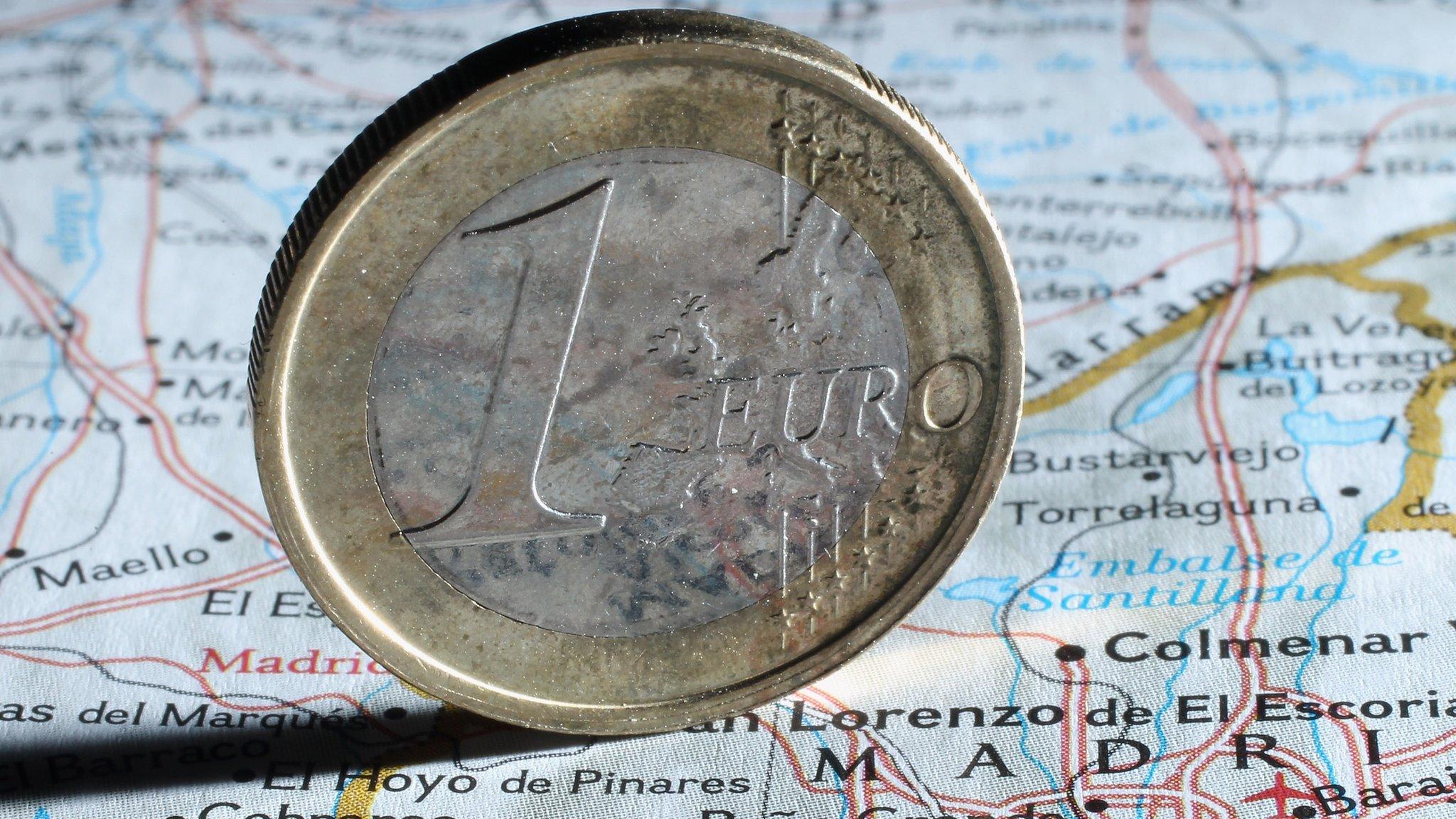
- Published19 June 2014
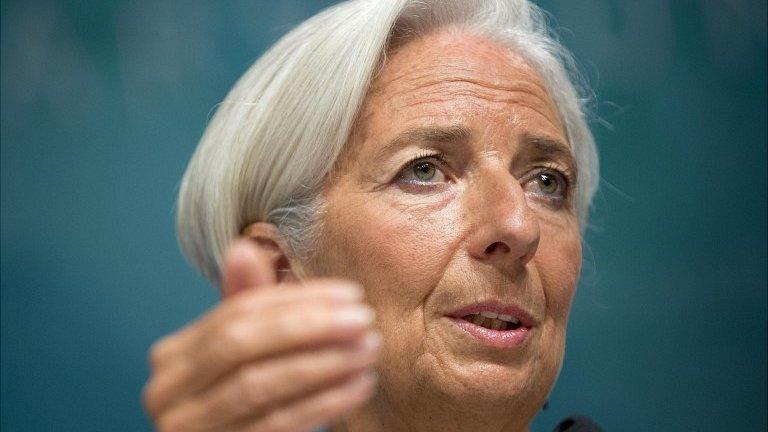
- Published5 June 2014
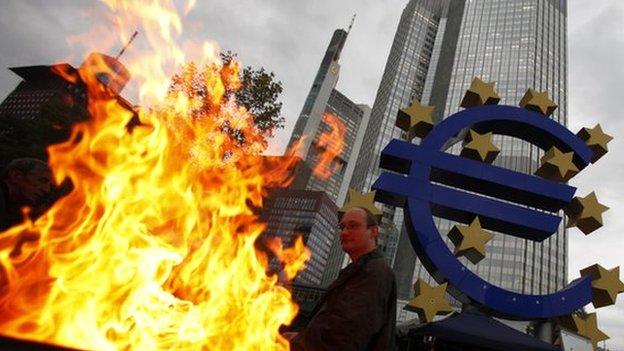
- Published5 June 2014
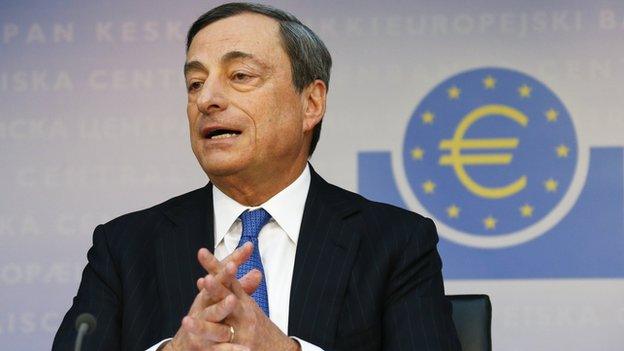
- Published22 May 2014
